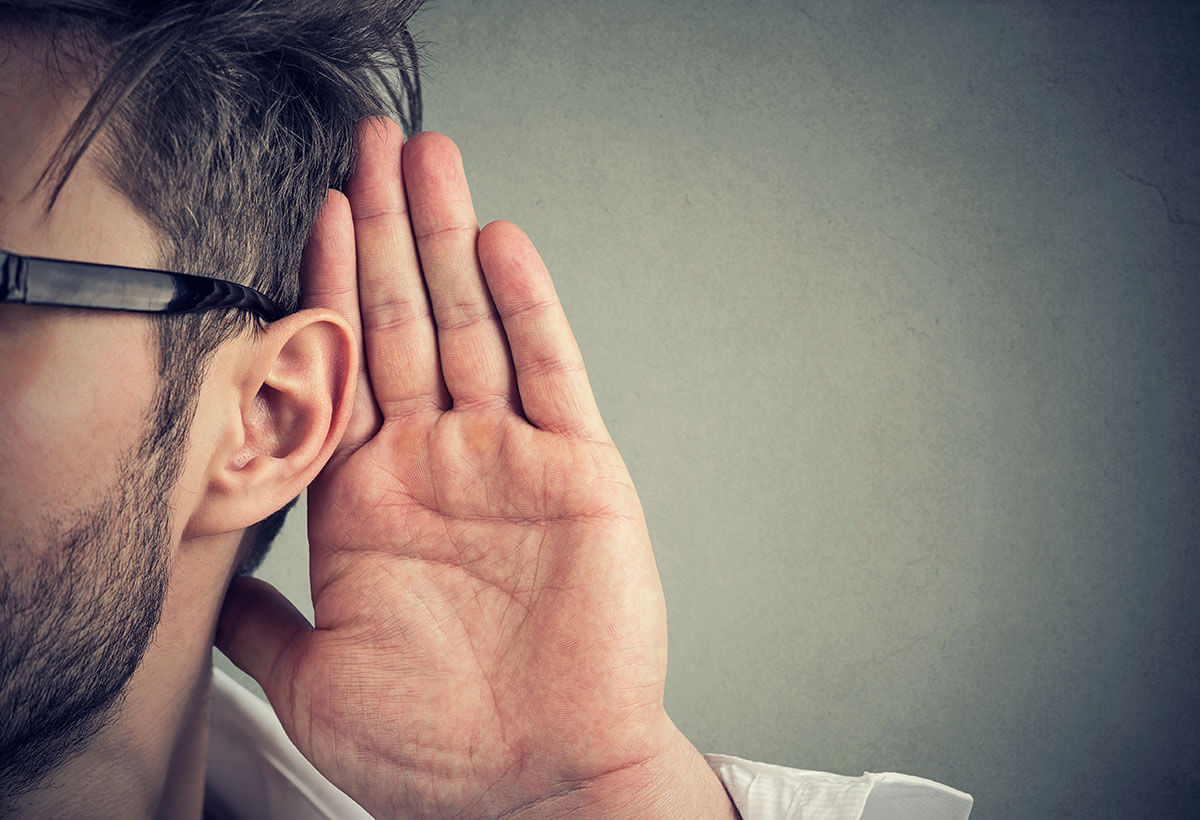No products in the cart.
Hearing Care Info, Hearing Health Info
Troublesome Noises Your Ear Makes
Your ears are meant to hear many things, but what if what you are hearing isn’t a good thing? The weird sounds that may be filling your ears could indicate that something is wrong. It may be a medical condition, or it could be one of the more natural noises your ears make. Without the help of an audiologist, you may not realize that the sensations occurring could lead to hearing loss. Rumbling is one fairly common noise people experience, and ringing is another. Read on to find out what could be causing your hearing disturbance.
Why Is My Ear Making Noise?
Ringing and rumbling are some of the more common noises you may experience in your ears. Though not always indicative of ear trouble, it is best to pay attention when something seems off with your sense of hearing. Here are some common ear sounds and what they may mean.
Rumbling
If you are experiencing rumbling in your ear, it may sound like a strong wind is blowing in your ear or a rushing river is flowing by. Though this may seem unnatural, the rumbling is generally related to the protective measures your body takes to protect your hearing. If a noise is too loud, it could lead to damage in your inner ear, impacting your ability to hear well. The rumbling you may experience is the response of the body to muffle or diminish the sounds you are hearing.
Your inner ear contains muscles called tensor tympani, and when these muscles contract, it can limit the vibration of the eardrum. As the eardrum vibrates, it sends incoming sound waves into the middle ear for processing up to the brain. When the vibrations are stunted, it has a dampening effect that results in a rumbling sound. It’s common to experience this sensation or sound when yelling, coughing, chewing, or yawing. It is possible that underlying medical conditions are creating this noise.
An ear infection occurs when the middle ear fills with the fluid that hasn’t properly drained out of the eardrum. Inflammation and redness occur within the ear as infection sets in, but an individual may experience mild to severe pain in the ear, have a sensation of fullness in the ear, or have difficulty with hearing. Any of these conditions could lead to a rumbling sound in the ear.
Meniere’s disease is a disorder of the inner ear that can result in an individual experiencing ringing in the ear, dizziness, congestion or the feeling of fullness inside the ear, or hearing loss. Both of these conditions can be treated to restore hearing and remove discomfort. It is also possible that an individual can control rumbling sounds, as a handful of people are able to contract their inner ear muscles at will. This ability may lead to a subconscious reflex that creates a rumbling or roaring noise when taking part in a certain activity or when specifically focusing on your ears and hearing. While this seems unusual, it does give the individual the ability to protect their ear from loud noises. A person who can tense or flex these muscles may be able to redefine or mask specific sounds in order to hear others.
Ringing
For those who hear ringing in their ears, it may be due to a condition called tinnitus. Symptoms of this condition often have a person hearing sounds even when nothing is present that could be making the sound. It isn’t just ringing, either. Someone may hear roaring, hissing, chirping, or whooshing with tinnitus. It has the potential to severely impact a person’s hearing, but the condition varies according to the cause of tinnitus. Some have problems with the tensor tympani muscles while others deal with blood vessel abnormalities within the ear. Tinnitus could be the cause of rumbling sounds, especially if the sensation occurs when yawning or chewing. Tinnitus can be diagnosed by an audiologist or physician.
Muffling
It is possible for the pressure in the inner ear to change, leading to a feeling of fullness. This sensation may be accompanied by ringing, as well as itching, pain, lightheadedness, or drainage from the ear. Feelings of fullness can be caused by a number of things, such as congestion, a build-up of earwax, infection, or excess fluid in the ear. For most of the conditions, treatment takes care of the symptoms and restore normal hearing sensations. However, since an infection or fluid imbalance could be the cause of the muffled or muted hearing condition, it is best to seek medical treatment.
How Can I Fix My Hearing?
Ear ringing, rumbling, and muffled hearing can be more than nuisances if left untreated. While these conditions aren’t generally associated with long-term hearing damage, it is important to discuss any symptoms you are having with an audiologist or an ear, nose, and throat physician. Happy Ears Hearing Center offers patients high-quality and personalized hearing assessments, treating common conditions like tinnitus and addressing hearing loss. Make an appointment to have your ears assessed and your hearing evaluated.


